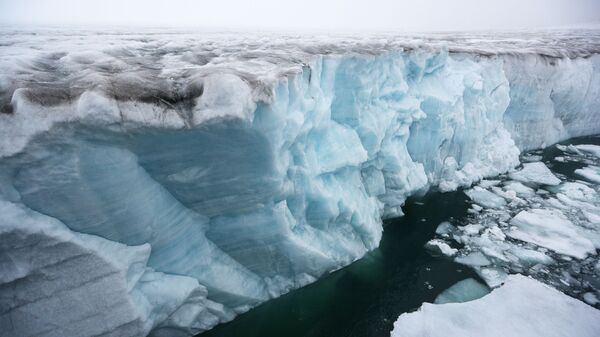The study, published Friday in the journal Current Biology, noted that several newly-discovered species of Chlamydiae live more than 3 kilometers below the ocean surface near Loki’s Castle, a field of active hydrothermal vents in the Arctic Ocean in between Iceland, Norway and the Norwegian archipelago of Svalbard. The researchers discovered the Chlamydiae living in an oxygen-devoid environment and without host organisms.
"Finding Chlamydiae in this environment was completely unexpected, and of course begged the question what on earth were they doing there?" Jennah Dharamsh, lead author of the study, is quoted as telling Phys.org.
By studying the bacteria’s genetic material in a lab, the scientists found that the Chlamydiae species in the sediments are closely related to the bacteria that causes the sexually transmitted disease in humans.
"Finding that Chlamydia have marine sediment relatives, has given us new insights into how chlamydial pathogens evolved,” Dharamshi told Phys.org.
As these new types of Chlamydiae bacteria were found in abundance in oxygen-devoid conditions, the researchers speculate that the bacteria may have an important role in marine ecosystems
"Chlamydiae have likely been missed in many prior surveys of microbial diversity," researcher Daniel Tamarit told Phys.org. "This group of bacteria could be playing a much larger role in marine ecology than we previously thought."
According to researcher Thijs Ettema, who was also involved in the study, the newly-discovered Chlamydiae may rely on other organisms in the marine sediments to survive.
"Even if these Chlamydiae are not associated with a host organism, we expect that they require compounds from other microbes living in the marine sediments. Additionally, the environment they live in is extreme, without oxygen and under high pressure, this makes growing them a challenge," Ettema explained.
Chlamydia is a common sexually transmitted bacterial infection that often causes no symptoms in humans. If left untreated, it can result in reproductive health problems, including pelvic inflammatory disease and infertility in women. Chlamydia can be cured with antibiotics.



